Strikes And Acts Of Rebellion: Lessons From Polish Solidarity For Belarus
15- 30.11.2020, 9:41
- 26,204
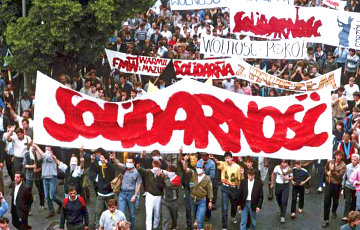
The victory of democracy has brought about the blossoming of Poland.
The way people come to power, keep it and lose it is the most pressing issue for Belarus now. The world history knows a lot of fascinating stories on this subject. Salidarnasts writes about a political thriller, the main character of which is another "Solidarity".
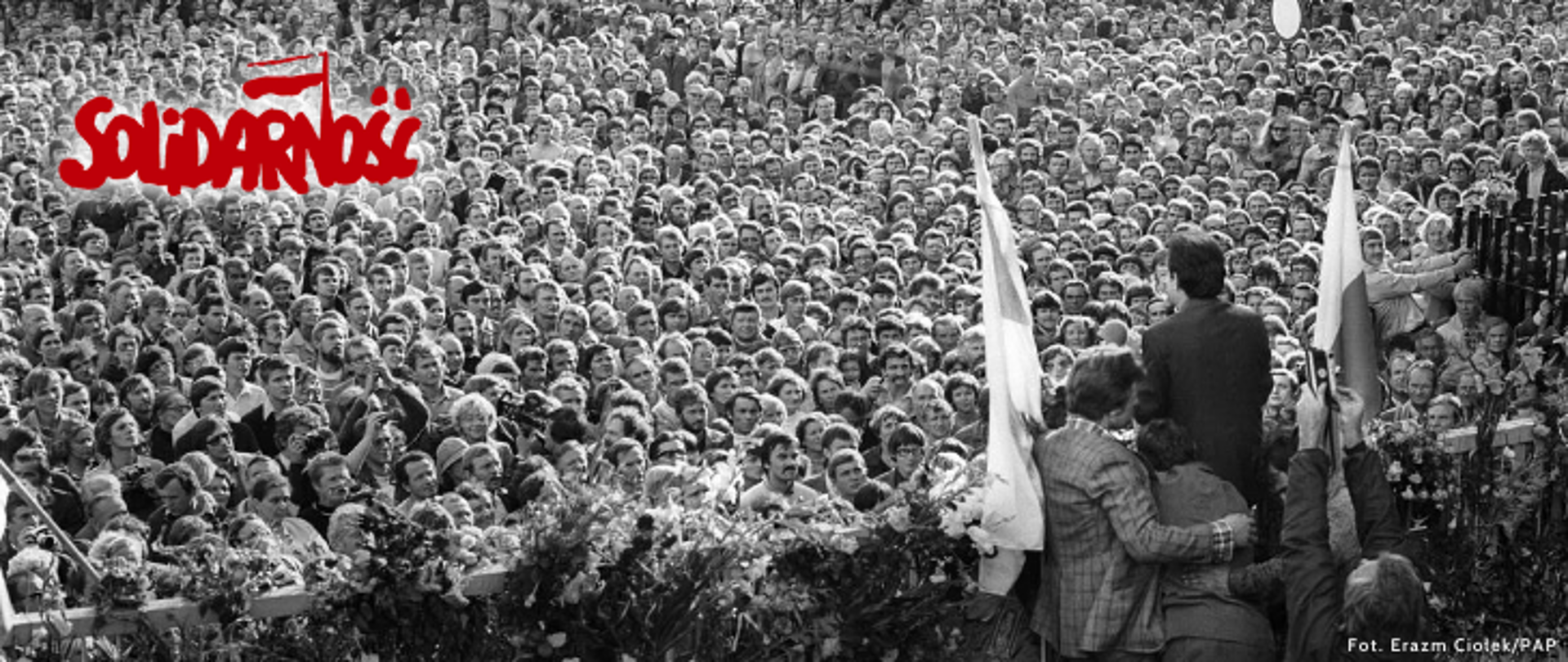
The legendary trade union did not appear in an empty place. It was preceded by the Poznan Uprising of 1956, student unrest in the sixties, strikes in the seventies ... All these protests were mercilessly suppressed by law enforcement officials.
Another round of protests took place in 1980. The strikes, which started in the Lublin voivodeship bordering Belarus, spread to Gdansk, where the shipyard named after Lenin went on strike. The economic demands were quickly joined by political demands - the liquidation of the communist regime.
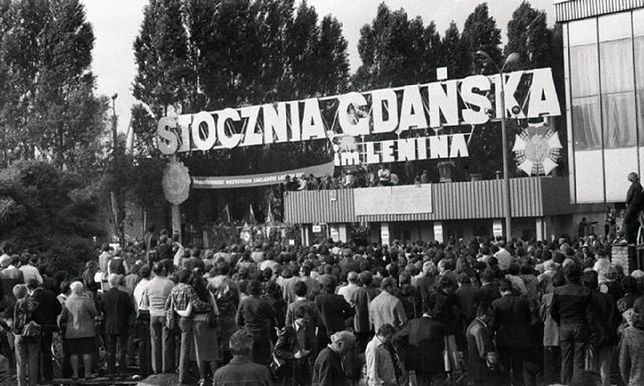
It is worth reminding what it was in the past. The USSR and the socialist camp seemed immutable. Their economies were gradually degrading, but the repressive machines were thoroughly fine-tuned. Political opposition was simply forbidden, and any dissent was nipped in the bud. Under such conditions, any protests looked doomed.
However, the critical mass was gradually accumulating, and even the Communists sometimes had to reckon with it. Therefore, the government commission, which arrived in Gdansk, signed a package of documents that recognized the workers' right to strike and establish independent trade unions, which was immediately used by representatives of the strike committees. This is how "Solidarity" came into being.
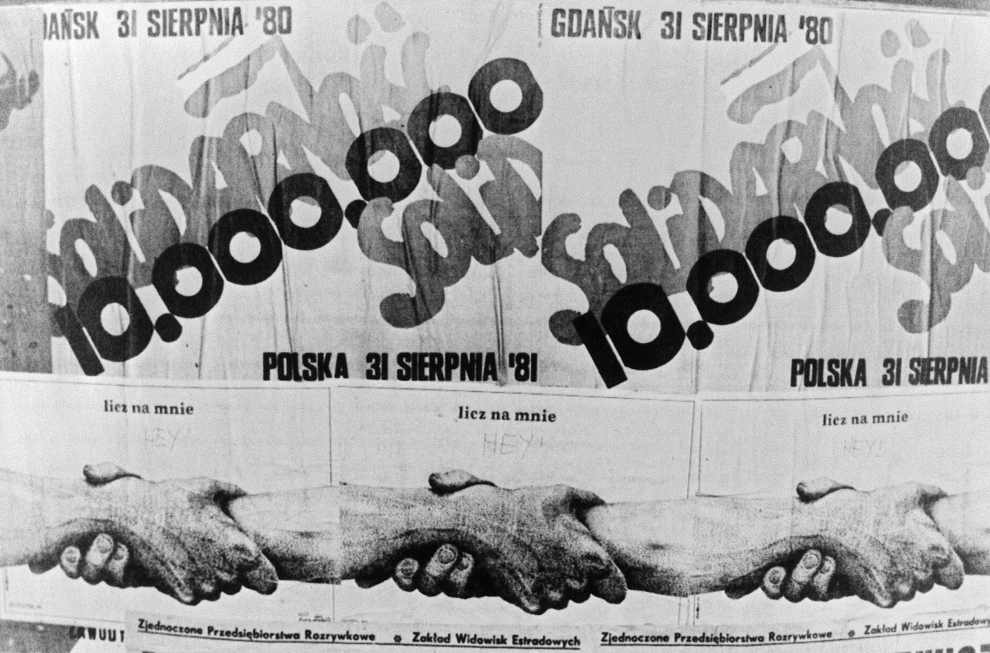
As it is today in Belarus, the Kremlin's factor played a significant role. Moscow found no pleasure in watching the "rampancy of democracy" during which many political prisoners were released, censorship in the media got weaker, and economic freedoms were expanded. The USSR authorities were studying the possibility of "putting order" in Poland by the Soviet army...
However, they managed to avoid intervention due to the resignation of Stanisław Kania, the first secretary of the Central Committee of the Polish United Workers Party, who was the opponent of coercive measures. He was replaced at the top party post by General Wojciech Jaruzelski.
The tensions were rising high. "Solidarity", which had gathered about 10 million Poles under its banners for a year, insisted on concessions from the ruling party, and the Polish United Workers Party did not want to share power.
Former USSR Defense Minister Dmitry Yazov notes that at the same time, Wojciech Jaruzelski actually saved Poland. The general not only did not ask for power support from Moscow (as Aliaksandr Lukashenka did in August 2020), but also made it clear what would happen if the Kremlin decided to provide "fraternal help" on its own initiative.
The culmination came in late 1981. On the night of December 13, Jaruzelski introduced martial law throughout Poland. Special services arrested more than 3 thousand activists of now banned "Solidarity" and other opposition organizations.
The strikes were violently suppressed under the leadership of Interior Minister Czeslaw Kiszczak. ZOMO (the Polish riot police) opened fire on participants of the strike at the Wujek coal mine: 9 people were killed. The demonstration in Gdansk, where about 100 thousand people got together, was dispersed by authorities with the help of army, and it was not without victims either...
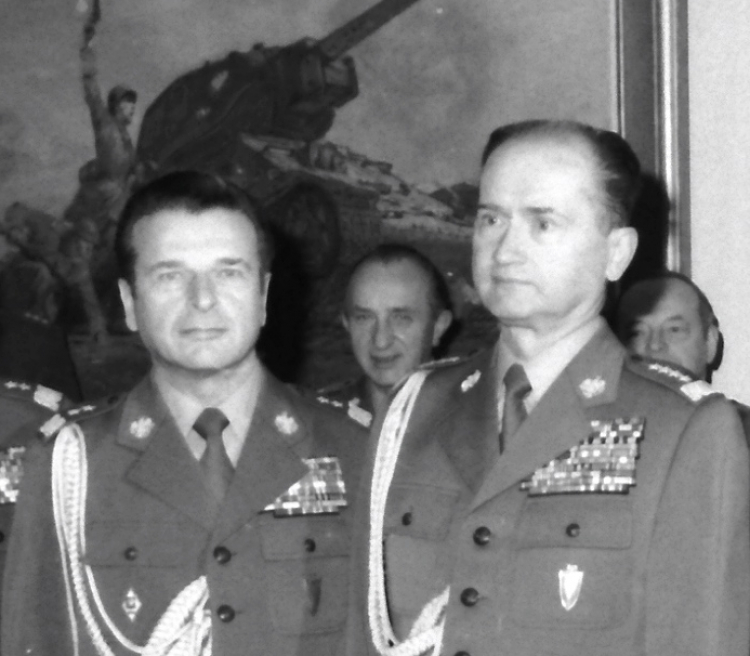
PHOTO: PAP
The open protests at the enterprises almost stopped. The "Solidarity" activists, who remained at large, went underground to prepare a counterstrike.
However, the mass protests in 1982 were brutally repressed again. In November, only the very few responded to "Solidarity's" call for a general strike.
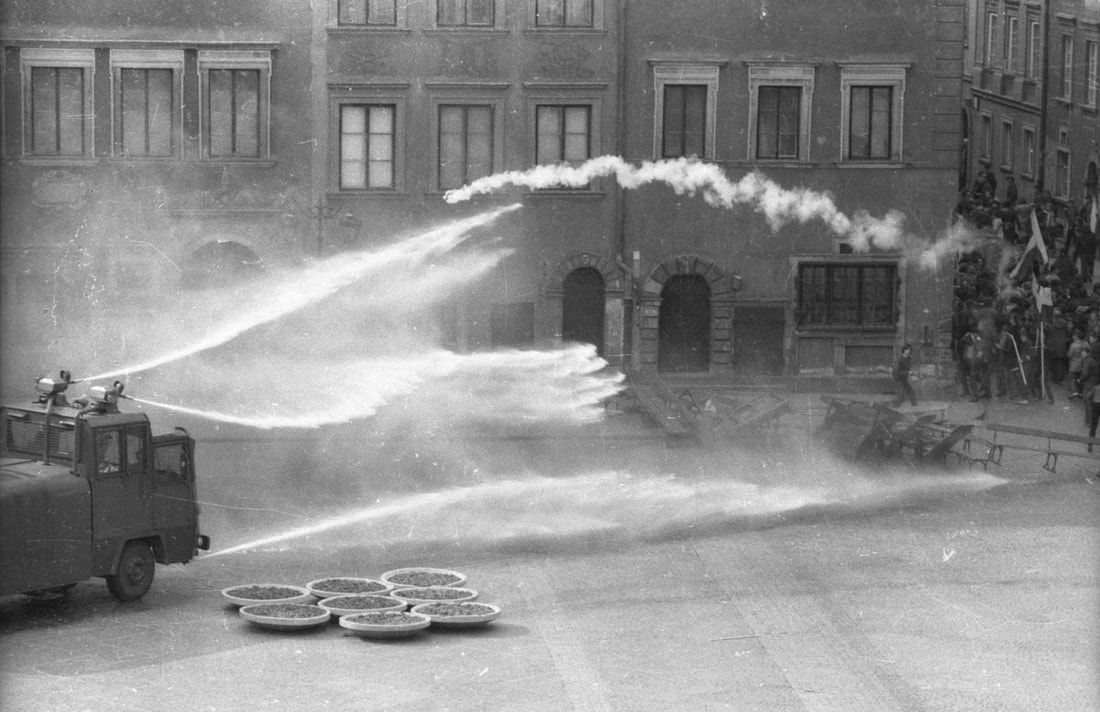
The communist leadership of Poland, using the force methods to the full, quite easily coped with the 10 millionth trade union. The authorities decided that they had put an end to the protests for a long time, if not forever. But it was just beginning.
The union changed its tactics. Information and propaganda work among the population was brought to the foreground. At that moment, the main symbol of "Solidarity" was the V sign.
When everything calmed down, freedom in exchange for emigration was offered to the arrested Solidarity leaders. They cried off the bargain, but were soon granted amnesty: the case even did not get to court.
At the same time, the repression continued. "The 'death squads' had existed in Poland for a long time. The notorious group D (Disintegration), a secret unit of the Interior Ministry, which had sanctions for any illegal actions against opponents of the Communist regime, alone says a lot. It was its employees who in October 1984 kidnapped and killed the Chaplain of the underground "Solidarity", Priest Jerzy Popiełuszko, whose bright sermons irritated not only the Polish, but also the Soviet leadership (a few weeks before the crime a scorching editorial about the priest was published in Izvestia).
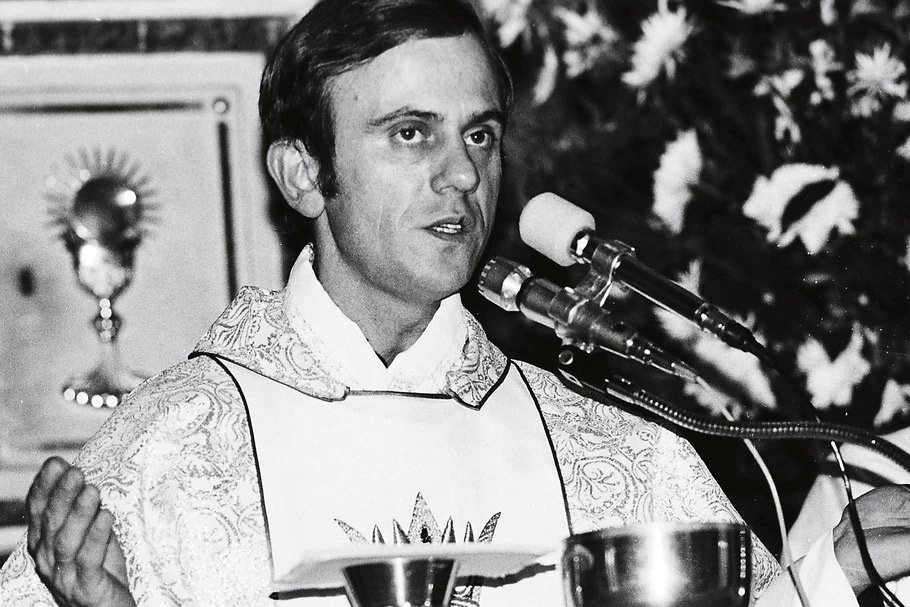
REPORTER
Terror against supporters of change was carried out not only by Group D. Already in 1984, an organization called "Anti-Solidarity" was established, which included members of the MIA security service. These chasteners practiced abduction and torture of oppositionists.
.png)
In all, since the introduction of martial law in 1981 and until the victory of democracy, more than 100 opponents of the communist regime have died. At the same time, "Solidarnost" remained committed to peaceful methods of struggle. Meanwhile, the Polish leadership was constantly accusing the trade union of plans to overthrow the existing system by force.
Another wave of protests started in the spring of 1988. The authorities traditionally responded with violence, but they already understood that they could not control the situation. An important role was also played by the fact that due to perestroika in the USSR, the threat of Soviet occupation had significantly decreased.
In autumn, secret negotiations began in Magdalenka, where "Solidarity" was represented by Lech Walesa, Adam Michnik, Tadeusz Mazowiecki and other leaders of the organization. On the other side of the table, no longer a barricade, was... Czeslaw Kiszczak.
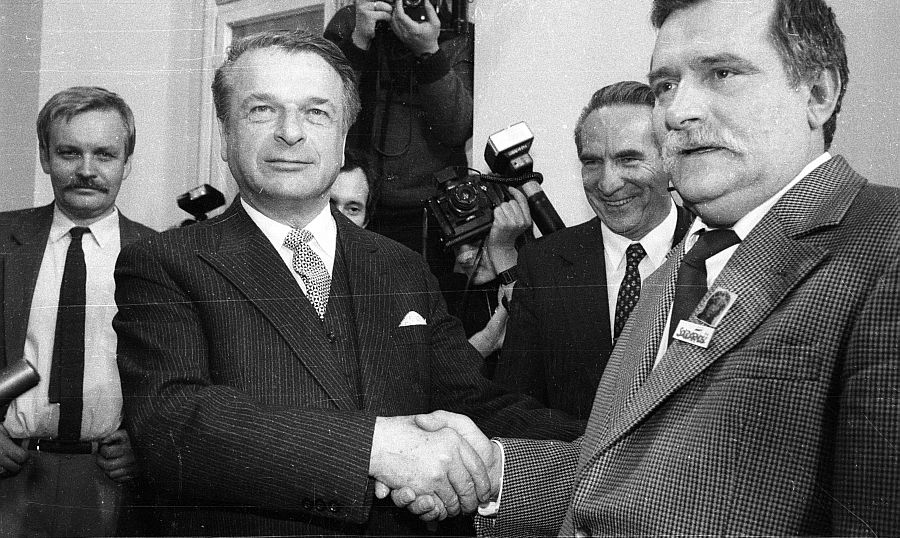
The general, who was famous for his cruelty, understood, however, that it was not a remedy for all occasions. It was Kiszczak, the one who was strangling the Solidarity activists in the first half of the eighties, who in the second half became one of the main supporters of the dialogue with the independent trade union.
The informal status of the meetings in Magdalenka, however, didn't prevent the opponents from reaching agreements that largely determined the future course of events. It was there that they managed to agree on holding an official round table between the Polish United Workers Party and "Solidarity".
However, those plans were nearly ruined. At the January plenum of the Polish United Workers Party Central Committee, the majority voted against negotiations with "Solidarity". Then, three generals - Wojciech Jaruzelski, Czeslaw Kiszczak and Defense Minister Florian Siwicki - issued an ultimatum: if the dialogue does not take place, they will resign. Fearing to stay one-on-one with the protesters, the party brass backed up and agreed to a round table.
The negotiations began in February 1989 and lasted two months. It is interesting that all that time "Solidarity" remained illegal: it was registered later.
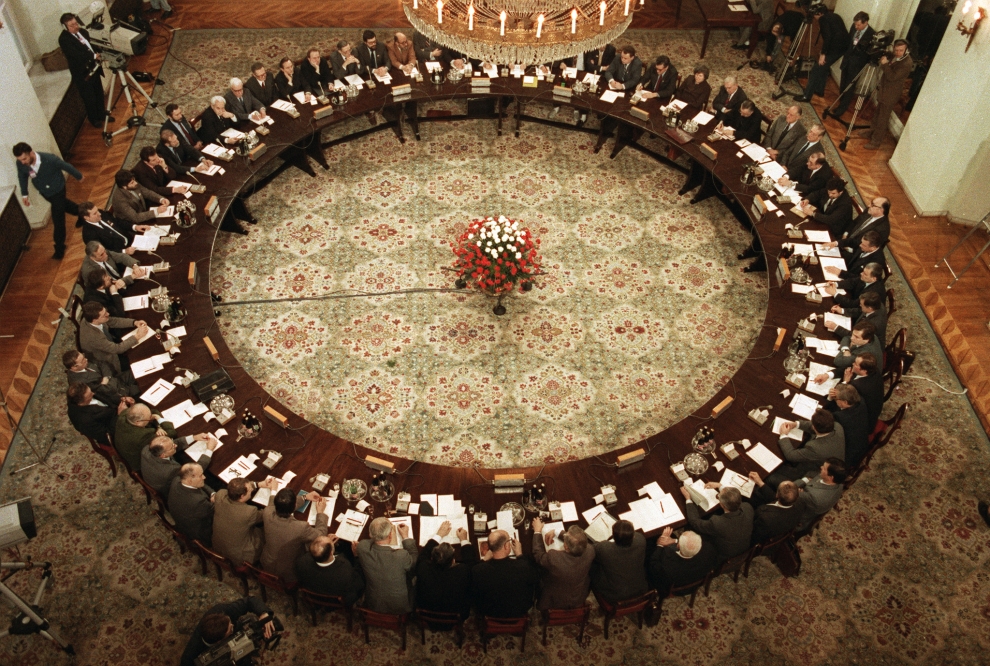
The results of the round table looked... a little strange. The presidential post that was introduced in the country was reserved for Jaruzelski for 6 years without any elections. The Polish United Workers Party and its controlled organizations guaranteed themselves 65% in the lower house of parliament without any elections. "Solidarity" got an opportunity to compete for the rest of the mandates in the Sejm, as well as the Senate (the upper chamber was fully elected on a competitive basis, but its powers were more of an advisory nature). The union was also granted a weekly 30-minute program on television.
It seemed that the Polish United Workers Party was retaining full control over the executive and legislative branches, as well as the situation in general. In reality, only a few months remained until the collapse of the communist regime in Poland.
The Citizens' Committee "Solidarity" was established to participate in the elections. The opposition hoped to get 10-20 seats in parliament.
The election results were stunning. Candidates of "Solidarity" took 161 out of 161 raffled mandates to the Sejm! Plus 99 out of 100 Senate seats.
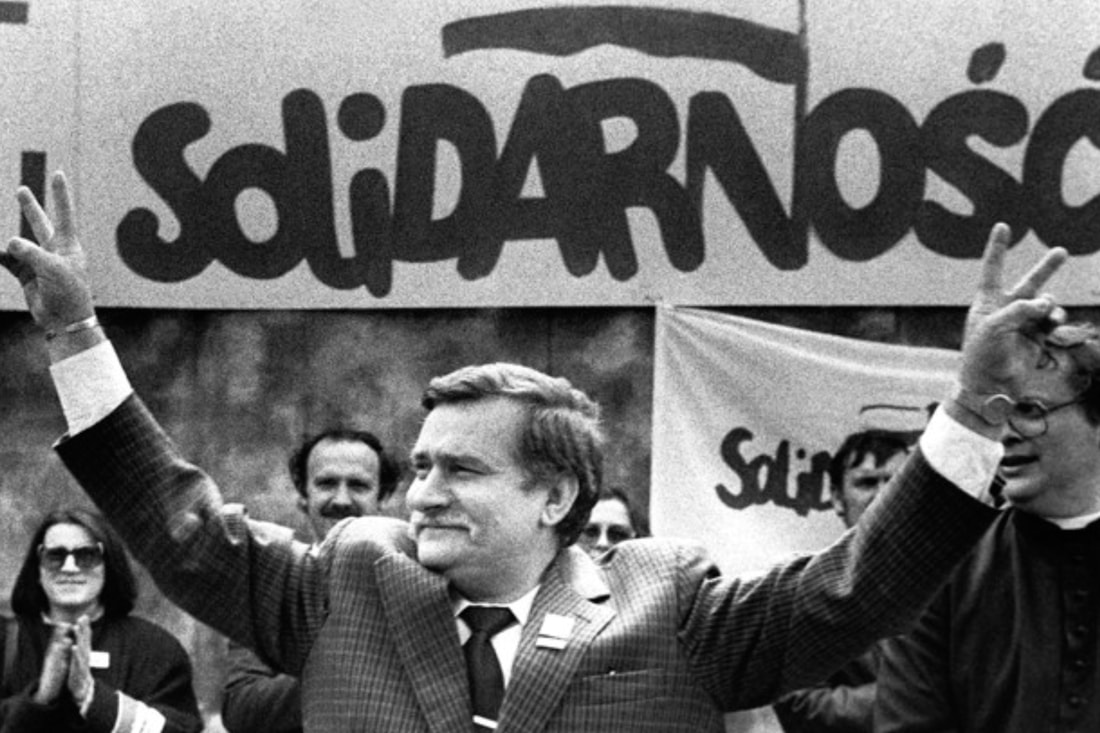
The game was played. As early as August, Tadeusz Mazowiecki became prime minister, and soon he formed the government in which "Solidarity" and its allies represented the overwhelming majority. In December, the Constitution was amended in order to record what had already happened - the status of the Polish state as a democratic one, the deprivation of the Polish United Workers Party of its leadership, etc. Jaruzelski served as president for less than a year and a half instead of the planned six and peacefully handed over power to Walesa as a result of the elections.
The victory of Solidarity led to the blossoming of Poland. It cannot be said that all the problems in this country (as in any other) have been solved now. However, the economy, which was in a permanent crisis under the Communists, showed uninterrupted growth from 1992 to 2019: during this time, its GDP increased by more than 5 times in dollar terms. The inflation rate was just over 3% per year and unemployment was about 6%.
.png)
"Solidarity", which recently celebrated its 40th anniversary, continues to help workers. And not only in Poland: in August, the union sent a shipment of humanitarian aid to Belarus...









